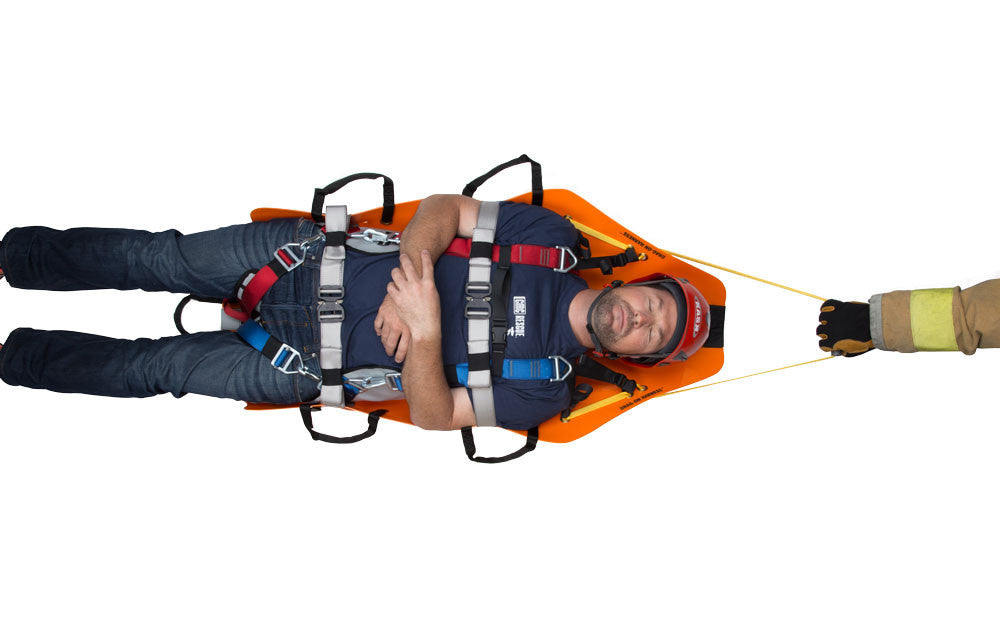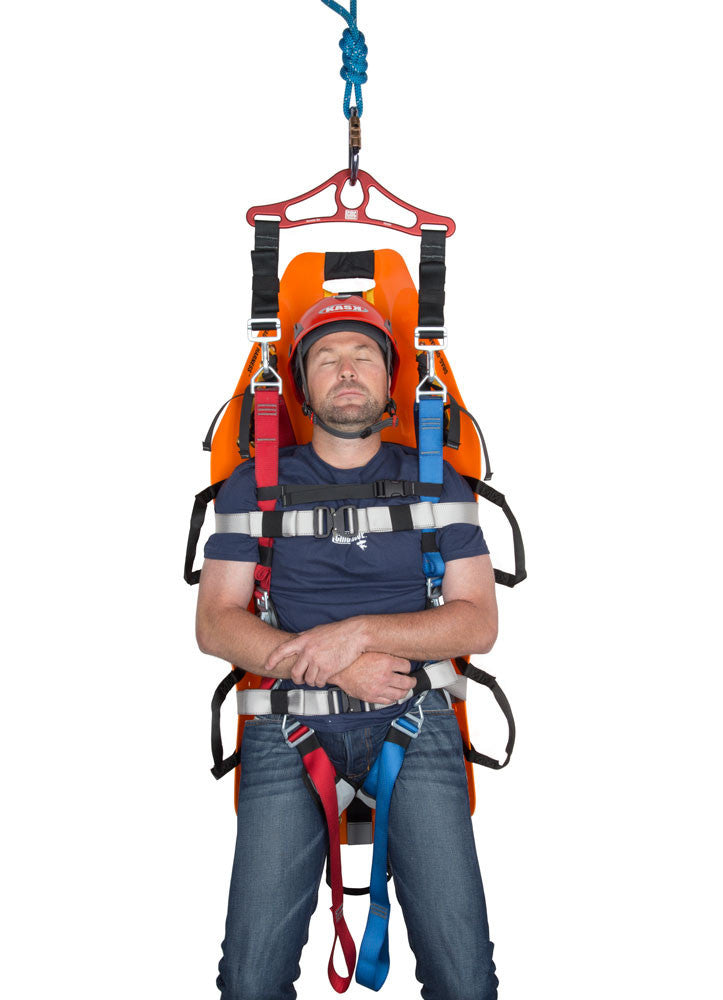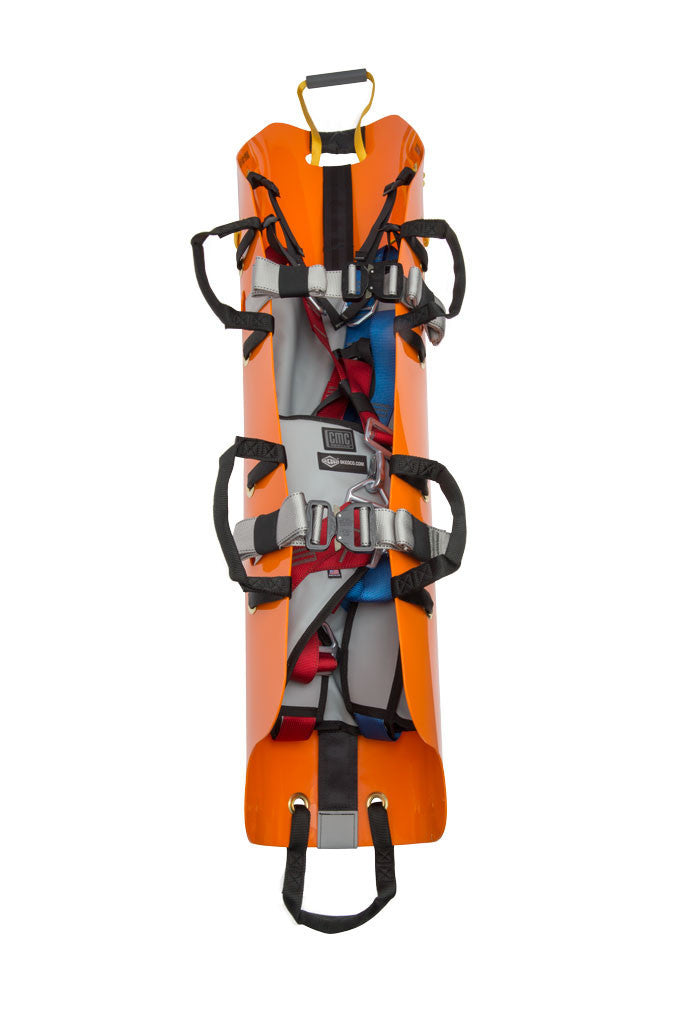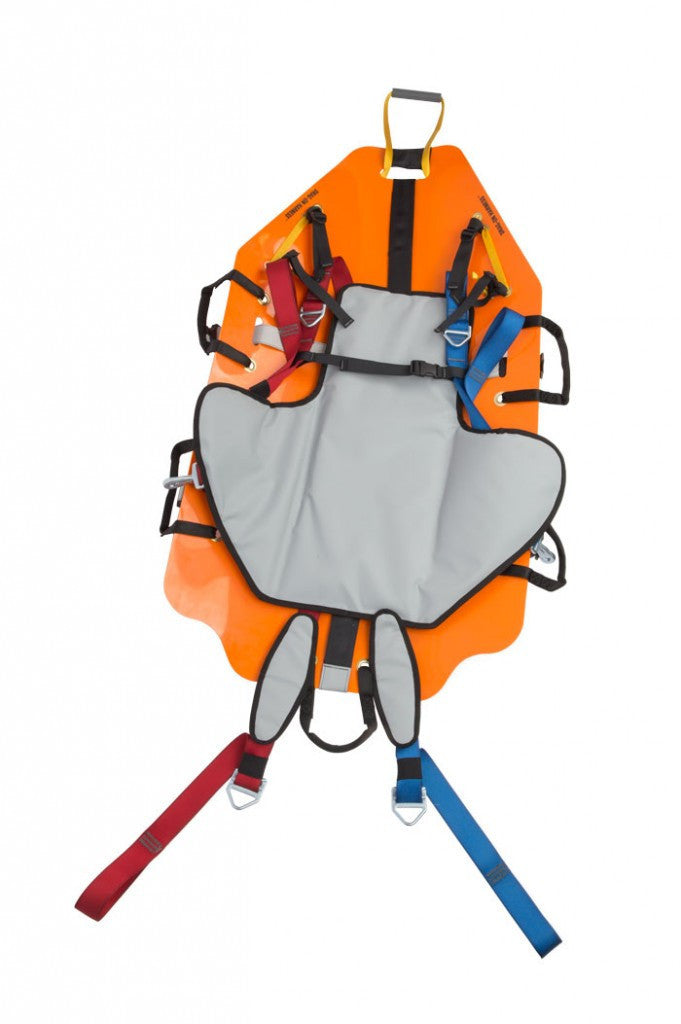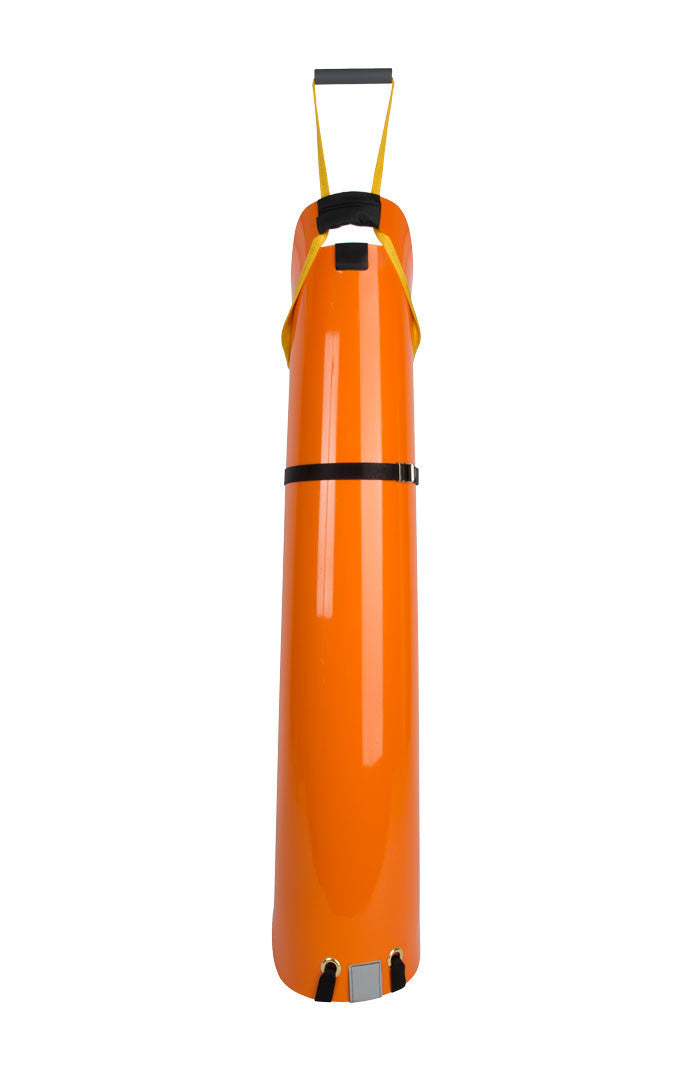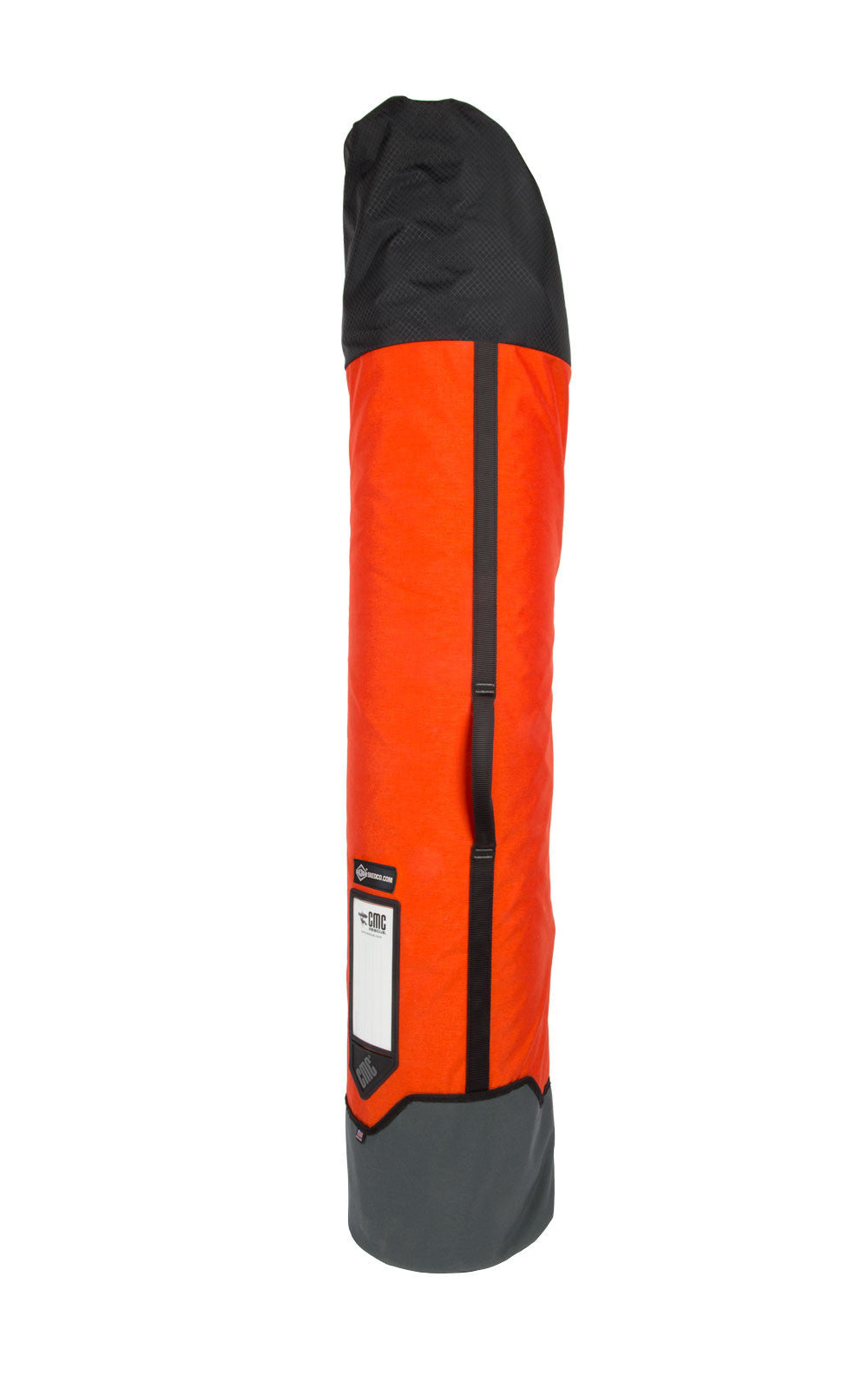CMC Rescue/Skedco Drag-On Lift Harness
Product Info
Because there is a need for a quick extrication device when spinal immobilization is not a concern, the CMC Rescue/SKEDCO Drag-On Lift Harness was developed and engineered as a means to rapidly package and extract a patient from a confined space.The device enables the rescuer to provide a fast load-and-go technique that allows the patient to be packaged efficiently and securely for a vertical lift, horizontal carry out or drag extraction.
Compact storage, ease of use, and flexibility in transport have made Sked stretchers popular worldwide. The drag sheet is constructed from heavy-duty E-Z glide plastic that becomes rigid when curved around the patient. A variety of handles and straps allow the stretcher to be transported by carrying, lifting (vertically or horizontally) from a rope system, or pulled with the stretcher sliding on its smooth bottom surface. In the event that spinal immobilization is needed, the device is compatible with the Oregon Spine Splint System (OSS) and cervical collar
Key Features
- Designed for quick and secure vertical lift, and horizontal drag or carry extrication
- Vertical lift attachment points designed for use with a lifting bridle/spreader bar
- Compatible with OSS System and other spinal immobilization devices
- Replaceable Skedco E-Z glide plastic drag sheet protects patient and harness
- Integrated harness assembly restrains the patient securely
- Padded back section and leg loops provide patient comfort
- Color-coded straps and quick-connect fasteners expedite patient packaging
- Handles on sides, top and bottom allow for easy positioning and moving the patient
- AustriAlpin Cobra buckles are secure and simple to adjust
- Corrosion-resistant hardware
- X-ray translucent
- Cleans easily
- Includes heavy duty water-resistant Cordura nylon storage bag
- UL Classified to NFPA 1983 (2012 ED) Class III Victim Extrication Device
-
Made in USA of domestic and foreign components
Spinal Immobilization Protocol
There has been a recent trend in the increasing number of EMS agencies that support a progressive, evidence-based approach in an effort to lessen unnecessary spinal immobilizations in the field. Its appropriate for emergency personnel to immobilize certain trauma patients, however many other trauma patients are unnecessarily immobilized. Spinal immobilization isnt always a benign intervention as it can result in increased scene time, delay of delivery to definitive care, problematic airway management, increased patient pain and discomfort, and unnecessary radiographic testing. Many trauma patients can be safely and accurately assessed and treated without spinal immobilization if they meet all criteria in pre-hospital spinal assessment guidelines. Extensive training and ongoing review is necessary for an effective selective immobilization protocol. Always refer to your specific medical directive for spinal immobilization procedure.
Documents
Video(s)

